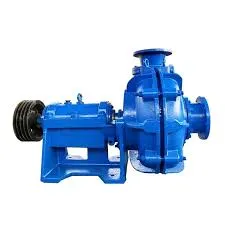Khmer
- Afrikaans
- Albanian
- Amharic
- Arabic
- Armenian
- Azerbaijani
- Basque
- Belarusian
- Bengali
- Bosnian
- Bulgarian
- Catalan
- Cebuano
- Corsican
- Croatian
- Czech
- Danish
- Dutch
- English
- Esperanto
- Estonian
- Finnish
- French
- Frisian
- Galician
- Georgian
- German
- Greek
- Gujarati
- Haitian Creole
- hausa
- hawaiian
- Hebrew
- Hindi
- Miao
- Hungarian
- Icelandic
- igbo
- Indonesian
- irish
- Italian
- Japanese
- Javanese
- Kannada
- kazakh
- Khmer
- Rwandese
- Korean
- Kurdish
- Kyrgyz
- Lao
- Latin
- Latvian
- Lithuanian
- Luxembourgish
- Macedonian
- Malgashi
- Malay
- Malayalam
- Maltese
- Maori
- Marathi
- Mongolian
- Myanmar
- Nepali
- Norwegian
- Norwegian
- Occitan
- Pashto
- Persian
- Polish
- Portuguese
- Punjabi
- Romanian
- Russian
- Samoan
- Scottish Gaelic
- Serbian
- Sesotho
- Shona
- Sindhi
- Sinhala
- Slovak
- Slovenian
- Somali
- Spanish
- Sundanese
- Swahili
- Swedish
- Tagalog
- Tajik
- Tamil
- Tatar
- Telugu
- Thai
- Turkish
- Turkmen
- Ukrainian
- Urdu
- Uighur
- Uzbek
- Vietnamese
- Welsh
- Bantu
- Yiddish
- Yoruba
- Zulu
Telephone: +86 13120555503
Email: frank@cypump.com
ធ្នូ . 13, 2024 14:09 Back to list
carbon slurry pump
Understanding Carbon Slurry Pumps Applications, Mechanisms, and Benefits
Carbon slurry pumps play a vital role in industries dealing with carbonaceous materials, particularly in the mining and metallurgical sectors. These specialized pumps are designed to effectively handle slurries containing fine solids and liquid mixtures, particularly those involving carbon ores. This article explores the mechanics, applications, and advantages of carbon slurry pumps, shedding light on why they are indispensable in certain industrial processes.
What is a Carbon Slurry Pump?
A carbon slurry pump is a type of centrifugal pump specifically engineered to transport slurries composed of fine particles and liquids, often containing carbon-based materials. These pumps typically feature robust construction and materials that can withstand the wear and tear caused by abrasive particles in the slurry. Their design incorporates specialized impellers and casings optimized for high-density slurries, ensuring efficient and reliable operation.
Key Mechanisms Behind Carbon Slurry Pumps
The working principle of carbon slurry pumps is similar to that of standard centrifugal pumps. When the pump operates, the impeller rotates, transferring kinetic energy to the slurry mixture. This energy transforms into pressure, which propels the slurry through the pump and into the discharge pipeline. The design of the impeller and casing is crucial, as it minimizes turbulence and optimizes flow characteristics, enabling the pump to handle high solid concentration without clogging or damaging components.
Applications of Carbon Slurry Pumps
1. Mining Industry One of the primary applications of carbon slurry pumps is in the mining sector, particularly in the processing of carbon ores like coal and graphite. These pumps facilitate the transport of slurries generated during the extraction and processing phases, ensuring that valuable materials are efficiently moved to subsequent processing stages.
2. Metallurgical Processing In metallurgical operations, carbon is often used as a reducing agent. Carbon slurry pumps are utilized to move slurries involved in smelting and refining processes. The pumps enable the consistent flow of carbon-rich materials, enhancing the efficiency of metal extraction and purification.
3. Chemical Processing The chemical industry also benefits from carbon slurry pumps. They can handle mixtures that include carbon-based chemicals, which are critical in the production of various synthetic materials. By ensuring smooth transport of these slurries, carbon slurry pumps contribute to the efficiency and safety of chemical reactions.
carbon slurry pump

4. Environmental Remediation In environmental applications, carbon slurry pumps assist in the treatment of wastewater containing carbon pollutants. The pumps enable the effective mixing and transport of carbon-based adsorbents or other materials used in water purification processes, playing a crucial role in pollution control.
Advantages of Carbon Slurry Pumps
1. Durability Carbon slurry pumps are built to endure the harsh environments typical of slurry applications. Their robust design means they can handle abrasive materials, extending the lifespan of the equipment and reducing maintenance costs.
2. Efficiency These pumps are designed for optimal hydraulic performance, which translates to lower energy consumption. By effectively moving slurries with minimal energy loss, they can contribute to overall operational cost savings.
3. Customization Many manufacturers offer a range of options for customization, allowing pumps to be tailored for specific applications. This adaptability ensures that businesses can select equipment that perfectly fits their operational needs.
4. Reduced Maintenance With their sturdy construction and efficient design, carbon slurry pumps typically require less frequent maintenance. This reliability leads to fewer interruptions in production schedules and enhances overall productivity.
5. Versatility Beyond just carbon materials, these pumps can handle a variety of slurries, making them beneficial in different industrial applications. This versatility helps companies streamline their operations by reducing the need for multiple pump types.
Conclusion
Carbon slurry pumps are a pivotal technology in industries that process carbon materials. Their robust design, efficiency, and versatility make them indispensable in mining, metallurgy, chemical processing, and environmental applications. As industries continue to innovate and demand more reliable equipment, understanding the importance and functionality of carbon slurry pumps will be essential for maximizing operational efficiency and sustainability. By investing in high-quality carbon slurry pumps, companies can enhance their productivity and contribute to more sustainable industrial practices.
-
High-Performance Air Pumps for Sand & Gravel | Efficient Transport
NewsAug.03,2025
-
ISG Series Vertical Pipeline Pump - Chi Yuan Pumps Co., LTD.|Energy Efficiency, Corrosion Resistance
NewsAug.03,2025
-
ISG Series Pipeline Pump - Chi Yuan Pumps | Energy Efficiency&Compact Design
NewsAug.03,2025
-
ISG Series Vertical Pipeline Pump - Chi Yuan Pumps Co., LTD.|High Efficiency, Low Noise, Durable
NewsAug.02,2025
-
ISG Series Vertical Pipeline Pump - Chi Yuan Pumps | High Efficiency, Low Noise
NewsAug.02,2025
-
ISG Series Vertical Pipeline Pump- Chi Yuan Pumps Co., LTD.|High Efficiency&Compact Design
NewsAug.02,2025










